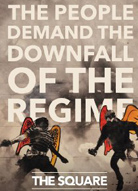And now Glenn's report from the New York Film Festival's tribute to Cate Blanchett.
 When the powers that be at the Film Society of Lincoln Center (my limited knowledge suggests they’re the organisation that runs the New York Film Festival) announced one of the recipients of this year’s special tributes would be Cate Blanchett it was probably hard to find anybody who’d argue against it. Granted, she had no films screening at the fest, but you just try and find anybody who doesn’t think her work in this summer’s Blue Jasmine was a career-topping and undeniably Oscar-bound achievement. A genuine “moment” for the acting craft that Blanchett herself would later acknowledge was like a magical culmination of her years in the profession and her favorite role yet.
When the powers that be at the Film Society of Lincoln Center (my limited knowledge suggests they’re the organisation that runs the New York Film Festival) announced one of the recipients of this year’s special tributes would be Cate Blanchett it was probably hard to find anybody who’d argue against it. Granted, she had no films screening at the fest, but you just try and find anybody who doesn’t think her work in this summer’s Blue Jasmine was a career-topping and undeniably Oscar-bound achievement. A genuine “moment” for the acting craft that Blanchett herself would later acknowledge was like a magical culmination of her years in the profession and her favorite role yet.
After a pair of introductions the assembled audience watched a collection of long film clips to whet the appetite. All five of her Oscar-nominated performances were featured – that’d be Elizabeth, Notes on a Scandal, I’m Not There, Elizabeth: The Golden Age, and The Aviator for which she won the golden Oscar – as were The Curious Case of Benjamin Button, The Talented Mr Ripley and her dynamic duel role in Coffee & Cigarettes. Another truncated clip package follows featuring a wider variety of films from Blanchett’s career which has spanned multiple continents, mediums and propelled her to roles as diverse as Katharine Hepburn and an Elf goddess.
Then out struts Cate Blanchett, her cheek bones so prominent they could distribute radio signals. My friends and I had guessed what colour dress she would be wearing and the winner was a very pale shade of pink. It doesn’t take long to figure out she’s in much better mood than when she recently and famously took to the stage of David Letterman’s chat show and couldn’t hide her disdain for his vacuous, uninformed line of questioning. Within moments she was self-depreciatingly joking about the empty seats, apologising for the “excruciating” clips (we’re looking at you Elizabeth: The Golden Age) and regaling tales of her first acting gig as an American cheerleader in an Egyptian boxing drama where she was promised five pounds and free falafel that never came.

Speaking for an hour alongside NYFF director of programming, Kent Jones, she spoke about many of her most famous roles. I most enjoyed her lengthy discussion on Todd Haynes that spawned out of I’m Not There upon which she noted, “Crossing the gender line in an industry that is usually very literal [was] very liberating.” She spoke at length about how much she loves Superstar (as do I) and musing, “If he can do that with barbie dolls then imagine what he can do with people.” She didn’t talk about Carol, but who isn’t anticipating that? She was also greeted with a personal video message from the one and only Woody Allen. A surprise even to her, he thanked her for her performance in Blue Jasmine and that’s about as big and as public of an endorsement from Woody Allen as you’ll ever get this side of a marriage proposal.
She then went into the advice given to her by Martin Scorsese on making her Aviator performance her own alongside her own acceptance that she was likely going to “upset Katharine Hepburn fans”. Then there was her son’s discomfort at the Lord of the Rings action figures not wearing underwear (coming soon, she joked, “The Blue Jasmine doll. She has a lot of accessories!”), the filmmaking process of Steven Soderbergh and Terrence Malick (on Knight of Cups: “I don’t know what my ultimate role will be”), her listing of her many stage works (“Hedda Gabler, Richard III, Blanche DuBois, The Maids with Isabelle Huppert"), and in another moment of surprise and applause the director of that aforementioned Egyptian film from 1992 stood up in the audience and tried to apologise for his poor treatment. No word on if he brought along any falafel. I wish there'd been some discussion of her Australian work, which was all but ignored, like Oscar and Lucinda, Little Fish and The Turning (what? no mention of Police Rescue: The Movie?)

Chin up, Cate. You're probably gonna win another Oscar!
The conversation was followed by a screening of Blue Jasmine which was apt since a running gag throughout the night was Blanchett’s obvious awareness that the evening was more or less an Academy Award publicity stunt, constantly blurting out “Blue Jasmine, directed by Woody Allen, distributed by Sony Pictures Classics.” Watching it again alleviated my fear that I’d over-sold it upon release. Turns out it’s a remarkably rewatchable film and, yes, Cate Blanchett’s performance is one for the ages. If she keeps doing publicity like this then the Oscar should be as good as hers.
 Saturday, October 5, 2013 at 6:23PM
Saturday, October 5, 2013 at 6:23PM 
 All is Lost,
All is Lost,  Best Actor,
Best Actor,  J.C. Chandor,
J.C. Chandor,  LFF,
LFF,  London,
London,  NYFF,
NYFF,  Robert Redford,
Robert Redford,  film festivals
film festivals 









